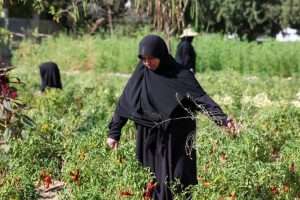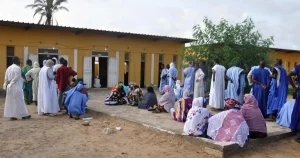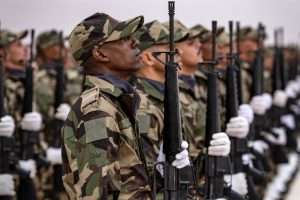First domestic flight arrives in Sudan’s capital since start of war

On October 22nd, the first domestic passenger flight landed in Sudan’s Khartoum International Airport since the civil war started, according to the Associated Press.
Sudan’s media and culture ministry confirmed that a Badr Airlines flight that departed from Port Sudan had safely touched down in the capital of Khartoum. This year, the airport has received just two flights that were carrying military chief and de facto leader of Sudan, Abdel Fattah al-Burhan.
Sudan has been embroiled in a devastating civil war since April 2023 after a power struggle between the military and paramilitary Rapid Support Forces turned bloody.
The RSF launched a series of drone strikes targeting the airport at dawn on October 21st, which were all successfully intercepted by the military.

After the attacks, al-Burhan visited the airport and stated that the military has a duty “to ensure protection and security for all Sudanese”, according to Al Jazeera. He added that “soon, no one will be able to threaten this land.”
After the drone strikes, RSF chief Mohammad Hamdan Dagalo, better known as Hemedti, threatened that he would not stop targeting the airport. “Any airplane that takes off from any neighbouring country, any airplane that is dropping supplies, bombing or killing, any drone that takes off from any airport, will be a legitimate target for us.”
The military reclaimed the airport in March and eventually seized total control of Khartoum from the grips of the RSF in May 2025. However, the brutal paramilitary group still controls almost all of western Sudan apart from the city of El-Fasher in North Darfur, which has been besieged by the RSF since May 2024.
El-Fasher has arguably become the most strategically important battlefront in the war, as it is the final remaining military stronghold in the vast region of Darfur. The RSF’s siege on the city is part of a wider campaign to choke out the last remaining forces and seize control.
Over a two-day period, 1,070 people fled from El-Fasher due to the extreme scarcity and hostile living conditions brought on by the siege.
Since the war started, over 40,000 people have been killed and a further 12 million have been displaced. More than 24 million people, which is roughly half of the total population, are facing acute food insecurity.
AP, Maghrebi.org, Al Jazeera
Want to chase the pulse of North Africa?
Subscribe to receive our FREE weekly PDF magazine














